Shanghai will be driving the development progress of the economic integration of the Yangtze River Delta in full swing this year. As the direction echoes with the construction of the Guangdong-Hong Kong-Macao Greater Bay Area (Greater Bay Area), the two initiatives can each put its strengths into full play and complement each other’s inadequacies to jointly contribute to the implementation of national strategies.
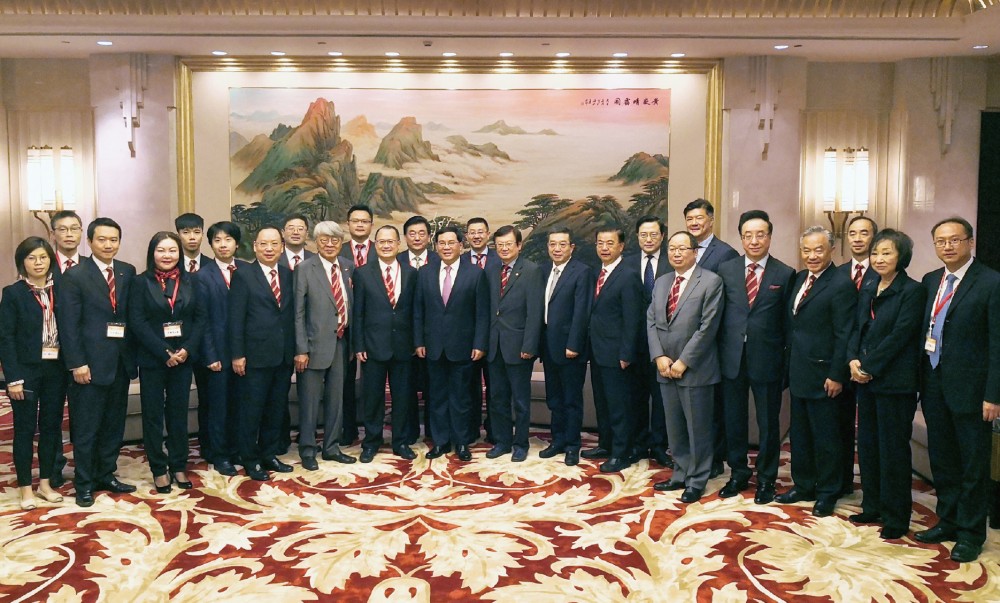
Li Qiang (eight from left, front row)
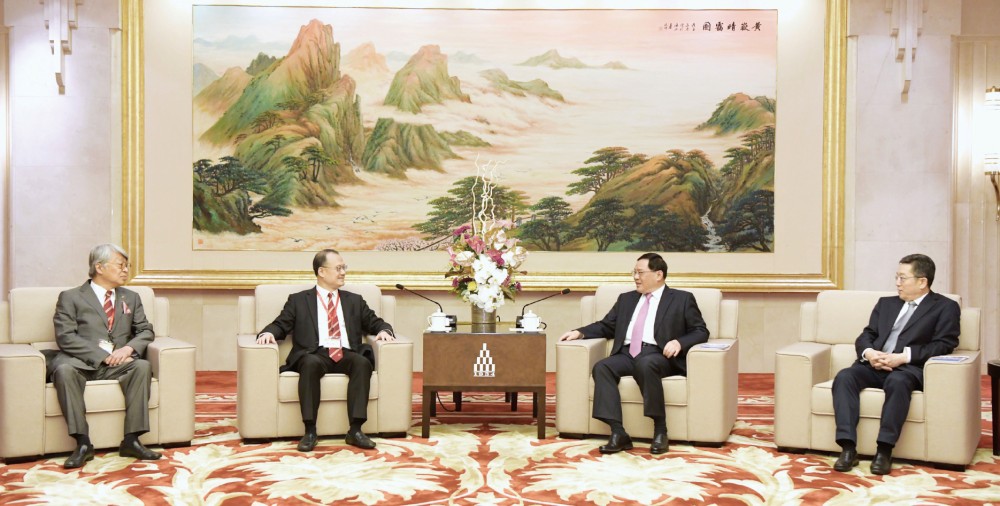
Li Qiang (second from right) and Zheng Gangmiao (first from right)
As the Yangtze River Delta continues to promote its economic integration in depth, there will be wider space for deepened cooperation between Shanghai and Hong Kong. Earlier on, Jonathan Choi, the Chamber’s Chairman led a delegation to visit Shanghai and met with Shanghai leaders, including Li Qiang, Member of the Political Bureau of CPC and Secretary of CPC Committee of Shanghai; Zheng Gangmiao, Standing Committee Member of CPC Shanghai Municipal Committee and Head of United Front Work Department of CPC Shanghai Municipal Committee; Zhuge Yujie, Standing Committee Member and Secretary-General of CPC Shanghai Municipal Committee; Wang Jue, Deputy Head of United Front Work Department of CPC Shanghai Municipal Committee; Zhou Yajun, Deputy Director of the Hong Kong and Macao Affairs Office of Shanghai Municipal Government and Li Qunce, Deputy Director of Shanghai Association for Friendship with Foreign Countries, etc. They discussed and exchanged ideas on how Shanghai and Hong Kong could complement each other in terms of resources, how the two locations could draw on the experiences their counterparts, and how companies could strengthen interactions, etc. An emphasis was placed on aligning the integrated development of the Greater Bay Area and the Yangtze River Delta to support the implementation of national strategies.
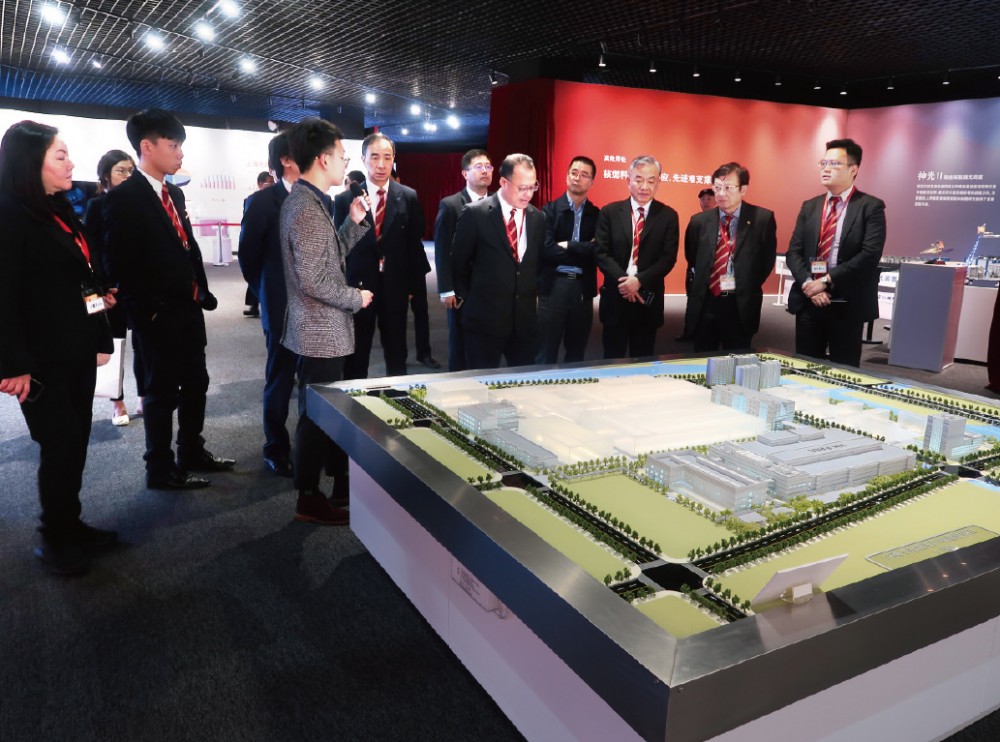 Hong Kong and Shanghai have always had close ties and frequent interactions. As Li Qiang commented, Shanghai and Hong Kong are highly complementary as both locations are developing their financial, trade and shipping industries, and both are attaching much importance to the development of technological innovation. There is much room for cooperation across a wide spectrum of fields. Li also pointed out that Shanghai is vigorously driving the implementation of three major initiatives. They are: the establishment of a new site for the Shanghai Free Trade Zone, the setting up of a science and technology innovation board and a registration-based IPO mechanism in the Shanghai Stock Exchange, and the upgrading of the integrated development of the Yangtze River Delta area to the national strategic level. He emphasized that Shanghai and Hong Kong are currently presented with two good opportunities for cooperation. The first one concerns the leading role of Shanghai in the economic integration the Yangtze River Delta; the second one is Hong Kong’s core city position in the construction of the Greater Bay Area. Shanghai and Hong Kong can further exchange, share and draw on each other’s experience to deepen cooperation and connection.
Hong Kong and Shanghai have always had close ties and frequent interactions. As Li Qiang commented, Shanghai and Hong Kong are highly complementary as both locations are developing their financial, trade and shipping industries, and both are attaching much importance to the development of technological innovation. There is much room for cooperation across a wide spectrum of fields. Li also pointed out that Shanghai is vigorously driving the implementation of three major initiatives. They are: the establishment of a new site for the Shanghai Free Trade Zone, the setting up of a science and technology innovation board and a registration-based IPO mechanism in the Shanghai Stock Exchange, and the upgrading of the integrated development of the Yangtze River Delta area to the national strategic level. He emphasized that Shanghai and Hong Kong are currently presented with two good opportunities for cooperation. The first one concerns the leading role of Shanghai in the economic integration the Yangtze River Delta; the second one is Hong Kong’s core city position in the construction of the Greater Bay Area. Shanghai and Hong Kong can further exchange, share and draw on each other’s experience to deepen cooperation and connection.
Jonathan Choi reckoned that the Greater Bay Area has the competitive edge of not only the “one country, two systems”, but also the systemic differences in customs territories and currencies. The experience of cooperation in the Yangtze River Delta would serve as a good reference for materializing the smooth and convenient flow of people, goods, capital and information within the Greater Bay Area. The delegation made a special visit to the Municipal Development and Reform Commission and the Yangtze River Delta Regional Cooperation Office and was much inspired on promoting the development of regional cooperation. As Shanghai is the leading city in the economic integration of the Yangtze River Delta region, he reckoned that the two city clusters could strengthen their cooperation and complement each other in their competitive edges in finance, technology and healthcare, etc. Hong Kong has been a facilitator, a participant, a beneficiary, as well as a contributor to China’s reform and opening up for 40 years. Choi hopes that it can be part of the national strategy and continue to integrate into the national development master plan in future, seizing the opportunities of national strategies, and contribute to the cooperation between Shanghai and Hong Kong and in the region.
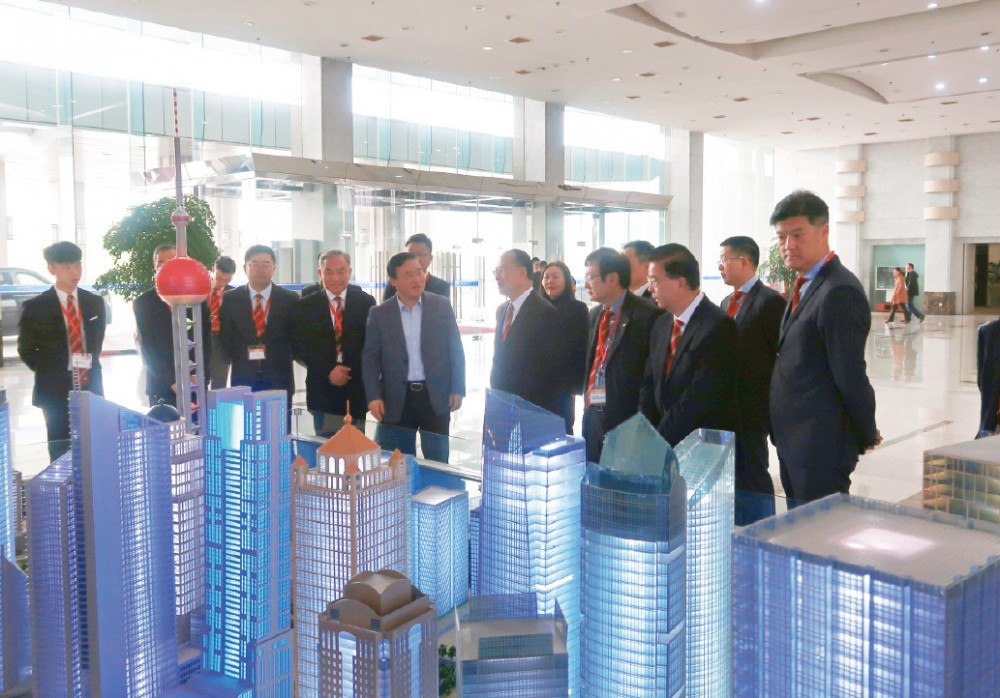 At the meeting, Choi also spoke on the recent work of the Chamber on promoting the “Belt and Road Initiative” and the construction of the Greater Bay Area. He quoted the Symposium on the Greater Bay Area held in Tokyo, Japan in April as an example. The symposium constructed a platform for exchange and cooperation for the political and business circles of Hong Kong, Guangdong and Japan. It also offered a reference from the development of Tokyo Bay, and was a successful example of Hong Kong and Mainland companies joining forces in “going global”.
At the meeting, Choi also spoke on the recent work of the Chamber on promoting the “Belt and Road Initiative” and the construction of the Greater Bay Area. He quoted the Symposium on the Greater Bay Area held in Tokyo, Japan in April as an example. The symposium constructed a platform for exchange and cooperation for the political and business circles of Hong Kong, Guangdong and Japan. It also offered a reference from the development of Tokyo Bay, and was a successful example of Hong Kong and Mainland companies joining forces in “going global”.
Li affirmed the important role of the Chamber as a bridge to promote cooperation between Shanghai and Hong Kong through the years. In future, Shanghai will continue to optimize its business environment, striving to offer highly effective quality service to various companies for better development in Shanghai. Hong Kong companies are welcomed to invest and start their businesses in Shanghai. Li specifically mentioned that the Hong Kong Industry and Commerce Training Program pioneered by the Chamber in early years has been nurturing more trade talents for the country. As a former trainee receiving training in Hong Kong, he was very impressed with the program.
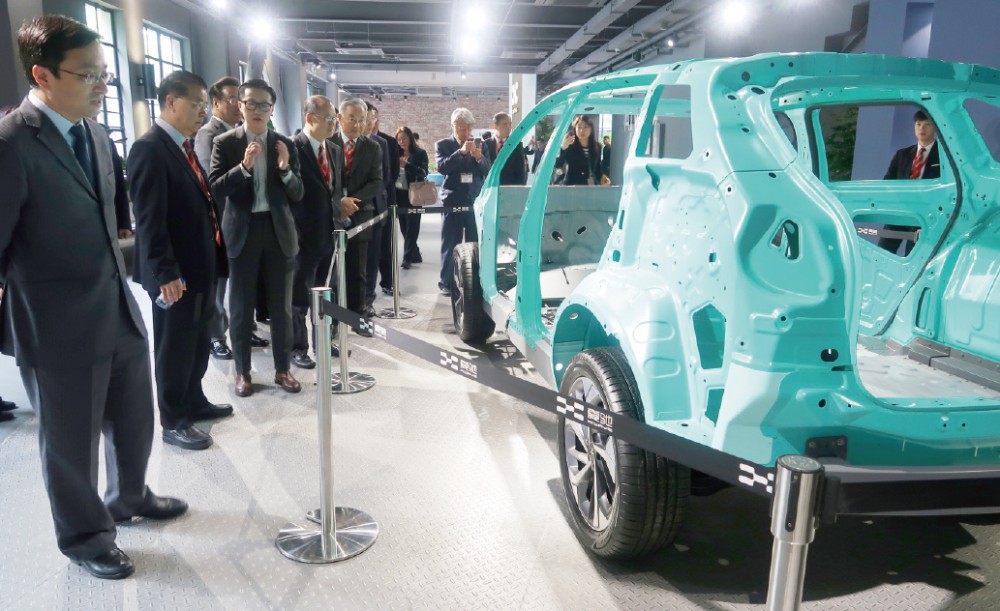
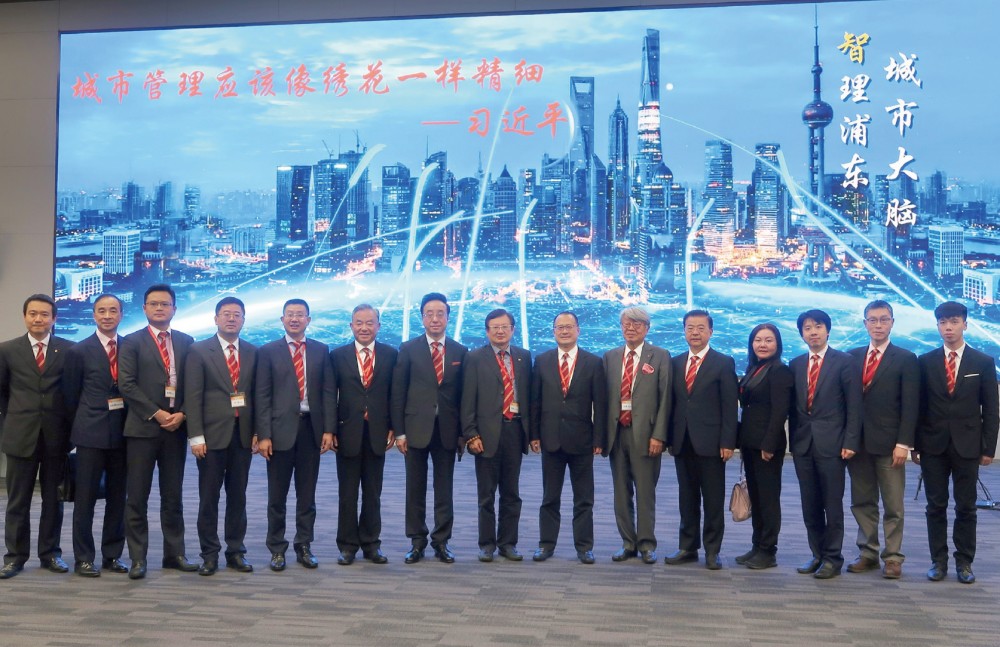
During their stay in Shanghai, the delegation visited the Entrepreneurial and Innovation Industrial Park Chang Yang Campus in Yangpu district, Hongqiao Central Business District and the National Exhibition and Convention Center (Shanghai) in Minhang district, as well as the City Operation & General Management Center and Zhangjiang Hi-Tech Park in Pudong New Area. The delegation also met and discussed with Weng Zuliang, Secretary of CPC Pudong New Area Committee; Li Yueqi, Secretary of CPC Yangpu District Committee; Ruan Qing, Deputy Director of Shanghai Municipal Development and Reform Commission and Deputy Director of Yangtze River Delta Regional Cooperation Office, etc.




